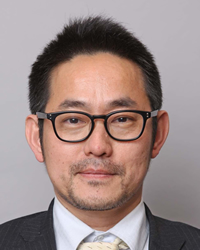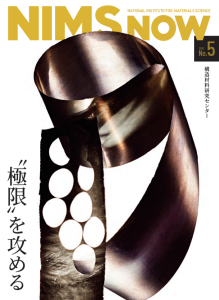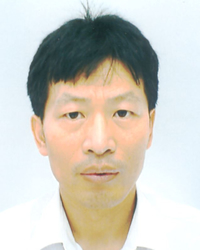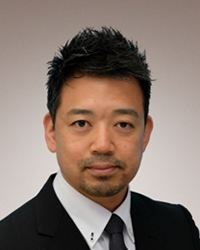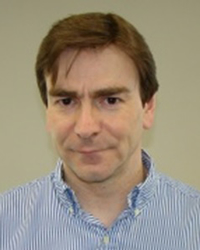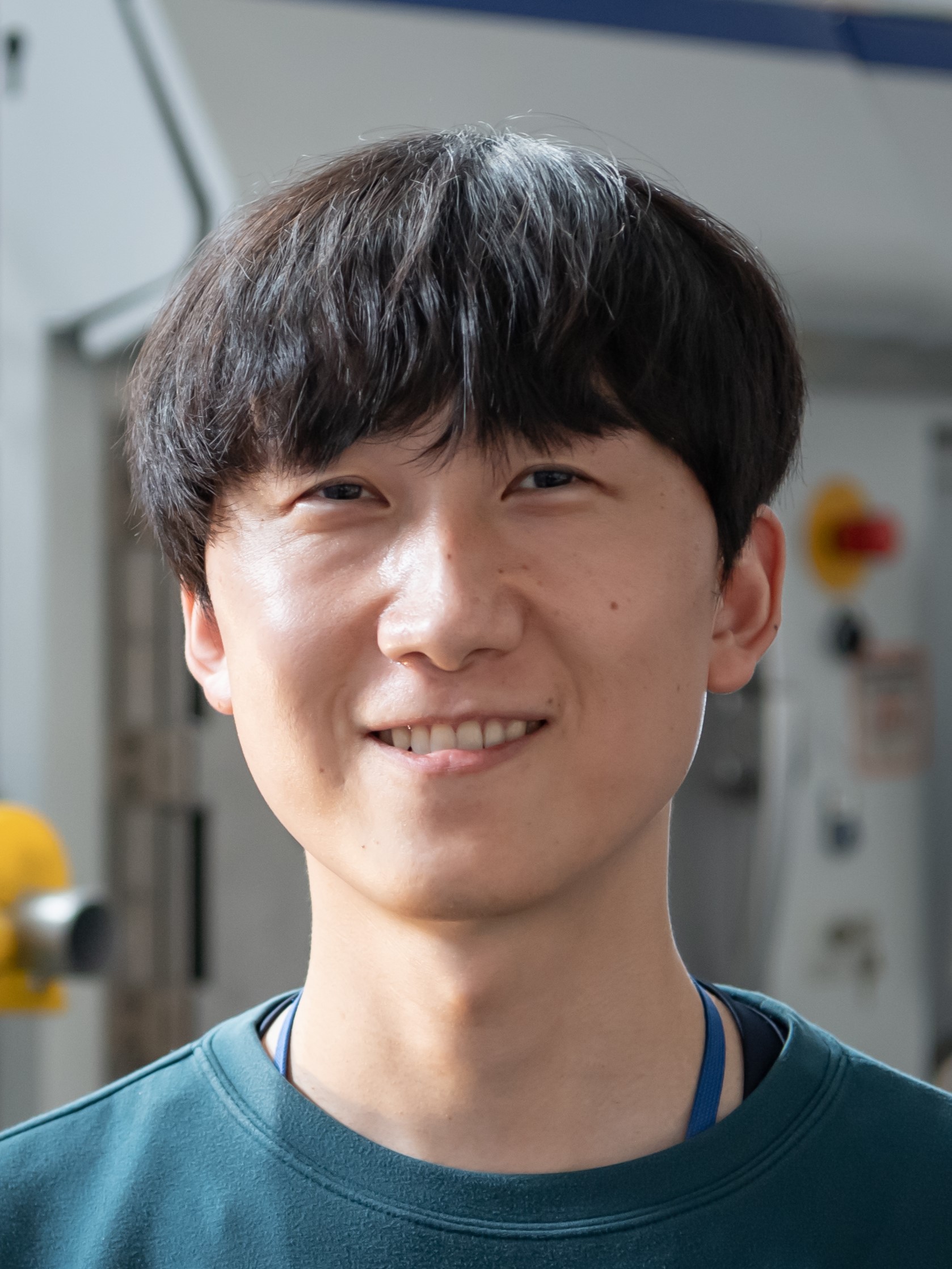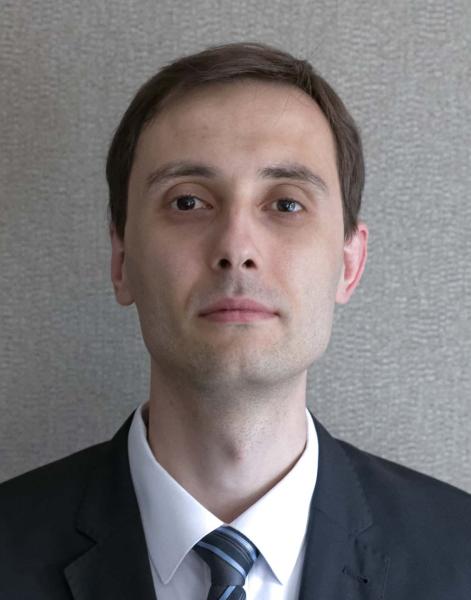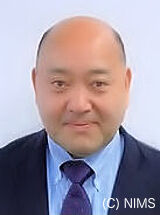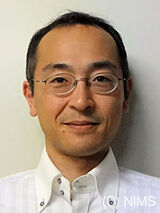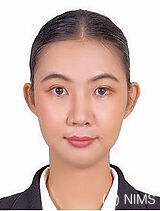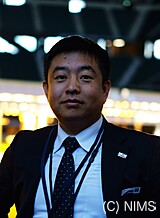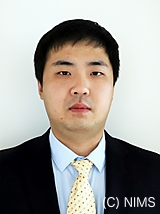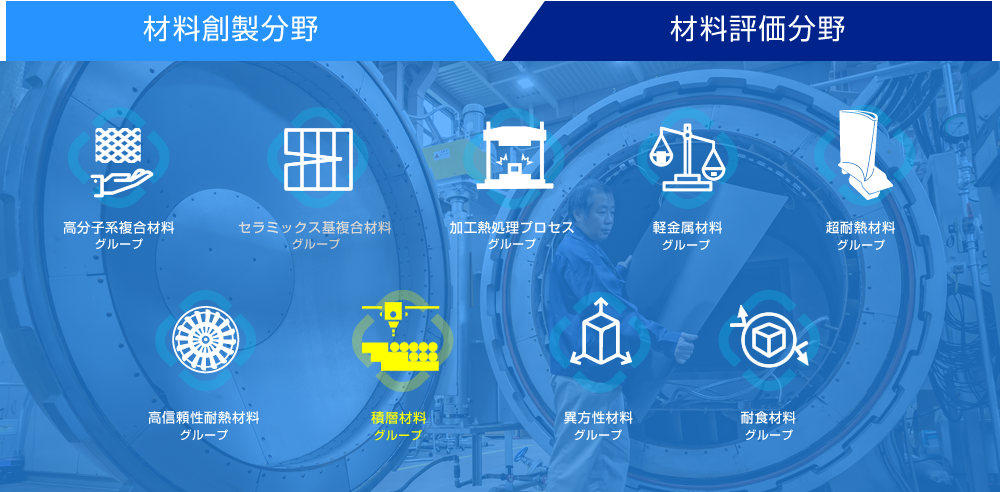 ↑他グループへはアイコンをクリック
↑他グループへはアイコンをクリック
積層材料グループ
Additive Manufacturing Group
積層材料グループでは、次世代のプロセス技術として注目される三次元積層造形 (3Dプリンタ) や、部材の保護技術として重要な溶射コーティングについて、研究開発を行なっています。ジェットエンジンやガスタービンなど高温エネルギー機器で利用される耐熱材料 (Ni基合金やTi合金、酸化物セラミックス等) を対象としています。
共同研究募集中 !
3D造形プロセスや溶射に関する共同研究を募集しています。
【お問い合わせ先】
渡邊 誠(わたなべ まこと)
WATANABE.Makoto=nims.go.jp([ = ] を [ @ ] にしてください)
研究概要
原料粉末から複雑な三次元構造を直接作成可能な3D積層造形プロセスについて、プロセス条件と材料組織、特性の相関について、実験および計算による予測の両面から研究を進めています。Ni基合金 (ハステロイX、Inconel 738LC等) や、Ti合金(Ti-6Al-4V、Ti-Nb)、耐熱鋼 (改良9Cr-1Mo鋼) 、ステンレス等、様々な構造材料を対象として、3D造形ならではの組織制御技術の確立や力学特性の最適化に取り組んでいます。さらに、これらの知見に基づいて、3D造形に適した新しい材料開発にも挑戦しています。この他にも、過酷な環境から部材を保護するための溶射コーティングや、信頼性確保のための非破壊評価技術についても研究しています。

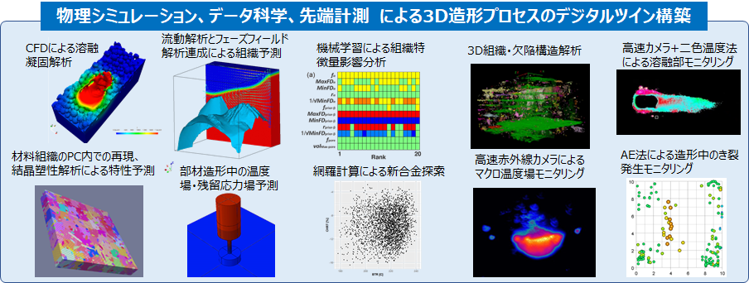
3Dプリンター(金属AM装置)
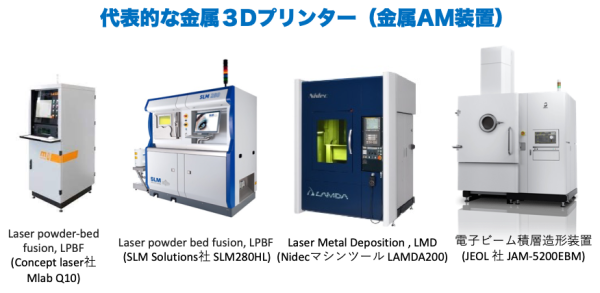
定年制職員
渡邊 誠 WATANABE Makoto
構造材料研究センター 副センター長
グループリーダー
何 東風 HE Dongfeng
主幹研究員
磁気センサ,非破壊検査,サーモグラフィー,渦電流,電磁,鉄筋腐食,積層材料欠陥
マーサー クリストファー MERCER Christopher
主幹研究員
Low Thermal Expansion, Auxetics, Lattices, Additive Manufacturing, Geometry Optimization
Crystal Plasticity, Finite Element Method, Continuum Mechanics, Fatigue and Fracture, Digital Image Correlation
任期制職員
研修生(連携大学院生等)
- 仲山 大晴 NAKAYAMA Taisei
NIMSジュニア研究員 - シュレイ メダ SHREY Medha
NIMSインターンシップ生 - マンガム スバカル MANGAM Subhakar
国際連携大学院生 - ヘ リ 何 櫟
研修生 - ガリエグ ルイ マクシミリアン マリ GALIEGUE Louis Maximilien Marie
研修生
論文リスト
2025年
![]() Meng L., Kitashima T., Lin P., Wang Z., Jiang Z., Huang Q., Zhao J.
Meng L., Kitashima T., Lin P., Wang Z., Jiang Z., Huang Q., Zhao J.
Achieving polymer-like ultrahigh elasticity in Ti−6Al−4V alloy via a new cryo-deformation induced α′-to-α″ martensite phase transformation
Acta Materialia.293(2025)121109
![]() Daram P., Kusano M., Watanabe M.
Daram P., Kusano M., Watanabe M.
Investigation of the Process Optimization for L-PBF Hastelloy X Alloy on Microstructure and Mechanical Properties
Materials.18[8](2025)1890
![]() Bhandari L., Gaur V., Briffod F., Shiraiwa T., Enoki M.
Bhandari L., Gaur V., Briffod F., Shiraiwa T., Enoki M.
High-temperature fatigue and creep damage mechanism in additively manufactured Ti-6Al-4V alloy
Engineering Failure Analysis.174(2025)109534
Katagiri J., Nomoto S., Kusano M., Watanabe M.
Influence of high Reynolds number flow inside molten pool on keyhole instability-induced pore formation process in laser powder bed fusion
Materials Today Communications.44(2025)111756
Nomoto S., Kusano M., Kitashima T., Watanabe M.
Numerical simulation method for the laser powder bed fusion process by lattice Boltzmann and multi-phase field methods
Computational Materials Science.250(2025)113688
Meng L., Kitashima T., Lin P., Zheng L., Jiang Z., Zhao J.
In situ EBSD investigation of microtexture evolution and slip activation of α macrozones during tensile deformation in Ti-6Al-4V alloy
Materials Science and Engineering: A.924(2025)147739
Honda H., Watanabe M.
Measurement of Laser Absorptivity of Inconel Powders with Additive Manufacturing Machine
Materials Transactions.66[1](2025)107-112
Briffod F., Yasuda K., Zhu J., Shiraiwa T., Jhon M., Gunawan F., Sahay R., Raghavan N., Budiman A.S., Enoki M.
Fatigue and fracture of accumulative roll-bonded Cu/Nb materials: Effects of layer thickness and loading direction
International Journal of Fatigue.193(2025)108772
2024年
Mercer C., Hasegawa A., Hosoda N.
Surface-activated bonding between a 3D-printed Ti-6Al-4V structure and bulk aluminum
Journal of Materials Science: Materials in Engineering.19[1](2024)47
Kuroda T., Masuyama H., Toda Y., Matsunaga T., Ito T., Watanabe M., Ozasa R., Ishimoto T., Nakano T., Shimojo M., Yamabe–Mitarai Y.
Microstructure Evolution and High–Temperature Mechanical Properties of Ti–6Al–4Nb–4Zr Fabricated by Selective Laser MeltingNippon Kinzoku Gakkaishi/Journal of the Japan Institute of Metals.88[12](2024)348-356
Bulgarevich D.S., Watanabe M.
Stress–strain curve predictions by crystal plasticity simulations and machine learning
Scientific Reports.14[1](2024)29492
Hagiwara M., Kitashima T.
High Cycle Fatigue and Very High Cycle Fatigue of Orthorhombic (O + α2)–Type Ti–27.5Nb–13Al Alloy with and without B and Fatigue Striation Analysis in Comparison with (α + β)–Type Titanium Alloys
Nippon Kinzoku Gakkaishi/Journal of the Japan Institute of Metals.88[12](2024)357-366
Katagiri J., Nomoto S., Kusano M., Watanabe M.
Effect of mushy zone constant in Voller-Prakash model on keyholing behaviour in laser powder bed fusion simulation
Results in Engineering.24(2024)103567
Verona I.C.M., Bardolaza H.R., Juguilon V.P.P., Bulgarevich D.S., Watanabe M., Tani M., Estacio E.S.
Investigation of Spin-Current Lifetime in Fe/Pt Spintronic Terahertz Emitter using Double Optical Pump Technique
International Conference on Infrared, Millimeter, and Terahertz Waves, IRMMW-THz.(2024)
Kusano M., Watanabe M.
Controlling heat accumulation through changing time per layer in laser powder bed fusion of nickel-based superalloy
Journal of Manufacturing Processes.131(2024)187-198
Hatakeyama T., Sawada K., Kusano M., Watanabe M.
Significant creep-strength improvement in modified 9Cr-1Mo steel via microstructural control through laser powder bed fusion
Additive Manufacturing.93(2024)104445
Morimoto T., Katoh H., Ishida Y., Hara E., Kusano M., Naito K., Watanabe M., Takagi K., Arai K., Hasegawa K.
Modified double cantilever beam test method for mode-I energy release rate of elastic adhesive layers
Engineering Fracture Mechanics.307(2024)110320
Daram P., Morisada Y., Ogura T., Kusano M., Yu J., Fukuda M., Fujii H., Kuroda S., Watanabe M.
Development of Tungsten Repair Technology by Atmospheric Plasma Spraying of Tungsten and Friction Stir Processing
Journal of Thermal Spray Technology.(2024)
Daram P., Singh A., Hiroto T., Kitashima T., Watanabe M.
Compositionally graded titanium to aluminum processed by laser powder bed fusion process: Microstructure evolution and mechanical properties
Materials Science and Engineering: A.903(2024)146638
Kitashima T., Hiroto T., Jodi D.E., Watanabe M.
Fabricating a single-crystal-like β grain structure of a near-β Ti alloy with unique variant selection by laser powder bed fusion
Materials and Design.243(2024)113039
Katagiri J., Nomoto S., Kusano M., Watanabe M.
Particle Size Effect on Powder Packing Properties and Molten Pool Dimensions in Laser Powder Bed Fusion Simulation
Journal of Manufacturing and Materials Processing.8[2](2024)71
Kitashima T., Hiroto T., Watanabe M.
Numerical analysis of Al2O3 and TiO2 growth and oxygen dissolution in a metal substrate during the isothermal oxidation of an α-Ti alloy at 973 K
Journal of Materials Research and Technology.30(2024)4137-4146
Okugawa M., Saito K., Yoshima H., Sawaizumi K., Nomoto S., Watanabe M., Nakano T., Koizumi Y.
Solute segregation in a rapidly solidified Hastelloy-X Ni-based superalloy during laser powder bed fusion investigated by phase-field and computational thermal-fluid dynamics simulations
Additive Manufacturing.84(2024)104079
Mercer C., Hosoda N.
Analysis of Structure and Function of Ladybird Leg and Subsequent Design and Fabrication of a Simplified Leg Structure for Robotic Applications
Biomimetics.9[3](2024)184
Honda H., Watanabe M.
Quantifying Laser Absorptivity of Ti–6Al–4V Powder through Additive Manufacturing Systems
Materials Transactions.65[2](2024)194-198
Kusano M., Takata Y., Yumoto A., Watanabe M.
Effects of time per layer and part geometry on thermal history and microcracking in the fabrication of nickel superalloy samples by laser powder bed fusion
Additive Manufacturing.80(2024)103987
Kusano M., Watanabe M.
Heat Source Model Development for Thermal Analysis of Laser Powder Bed Fusion Using Bayesian Optimization and Machine Learning
Integrating Materials and Manufacturing Innovation.(2024)
2023年
Zhu J., Briffod F., Shiraiwa T., Enoki M., Emura S.
Kink band formation mechanism in α/β Ti-9Cr two-phase alloy
Journal of Alloys and Compounds.939(2023)168736
Wang Q., Ma N., Huang W., Shi J., Luo X.-T., Tomitaka S., Morooka S., Watanabe M.
Key role of temperature on delamination in solid-state additive manufacturing via supersonic impact
Materials Research Letters.11[9](2023)742-748
Wang Q., Ma N., Chen J., Tomitaka S., Watanabe M.
Microstructure characteristics of warm spray additively manufactured Inconel 718 superalloys and correlation with mechanical performance
Materials Letters.341(2023)134230
Talara M., Bulgarevich D.S., Kobayashi K., Kitahara H., Furuya T., Escano M.C., Watanabe M., Tani M.
Impact of Antenna Metal's Thicknesses and Structures on Terahertz (THz) Wave Generation Performance of Spintronic Emitters
International Conference on Infrared, Millimeter, and Terahertz Waves, IRMMW-THz.(2023)
Osada T., Koyama T., Bulgarevich D.S., Minamoto S., Osawa M., Watanabe M., Kawagishi K., Demura M.
Virtual heat treatment for γ-γ′ two-phase Ni-Al alloy on the materials Integration system, MInt
Materials and Design.226(2023)111631
Meng L., Kitashima T., Zhao Z., Wei Q., Lin P.
Effect of parent β-texture on α-texture evolution during dynamic precipitation in a continuous forging process of Ti-6Al-4V alloy
Journal of Alloys and Compounds.947(2023)169425
Kuroda T., Masuyama H., Toda Y., Matsunaga T., Ito T., Watanabe M., Ozasa R., Ishimoto T., Nakano T., Shimojo M., Yamabe-Mitarai Y.
Microstructure Evolution and High-Temperature Mechanical Properties of Ti6Al4Nb4Zr Fabricated by Selective Laser Melting
Materials Transactions.64[1](2023)95-103
Katagiri J., Kusano M., Minamoto S., Kitano H., Daimaru K., Tsujii M., Watanabe M.
Melt Pool Shape Evaluation by Single-Track Experiments and Finite-Element Thermal Analysis: Balling and Lack of Fusion Criteria for Generating Process Window of Inconel738LC
Materials.16[4](2023)1729
Jodi D.E., Kitashima T., Singh A., Watanabe M.
High-temperature microstructural stability of pure Ni fabricated by laser powder bed fusion using Gaussian and flat-top beam profiles
Materials Characterization.200(2023)112897
Hatakeyama T., Sawada K., Suzuki M., Watanabe M.
Microstructure development of modified 9Cr-1Mo steel during laser powder bed fusion and heat treatment
Additive Manufacturing.61(2023)103350
Hagiwara M., Kitashima T.
High Cycle Fatigue and Very High Cycle Fatigue of Orthorhombic (O + α 2 )-Type Ti–27.5Nb–13Al Alloy with and without B and Fatigue Striation Analysis in Comparison with (α + β)-Type Titanium Alloys
Materials Transactions.64[1](2023)121-130
Daram P., Hiroto T., Watanabe M.
Microstructure and phase evolution of functionally graded multi-materials of Ni–Ti alloy fabricated by laser powder bed fusion process
Journal of Materials Research and Technology.23(2023)5559-5572
Bulgarevich D.S., Nomoto S., Watanabe M., Demura M.
Crystal plasticity simulations with representative volume element of as-build laser powder bed fusion materials
Scientific Reports.13[1](2023)20372
Zhu J., Briffod F., Shiraiwa T., Enoki M., Emura S.
High-Resolution Digital Image Correlation Analysis of Layered α/β Two-Phase Ti–12Mo Alloy under Compressive Condition
Materials Transactions.64[12](2023)2677-2686
Kitahara H., Ishii K., Talara M., Furuya T., Escano M.C., Tani M., Bulgarevich D.S., He D., Watanabe M.
Improvement in the Detection Efficiency of Terahertz (THz) Time-domain Spectroscopy (TDS) by applying an Alternating Magnetic Field Bias in Spintronic Emitter
International Conference on Infrared, Millimeter, and Terahertz Waves, IRMMW-THz.(2023)
